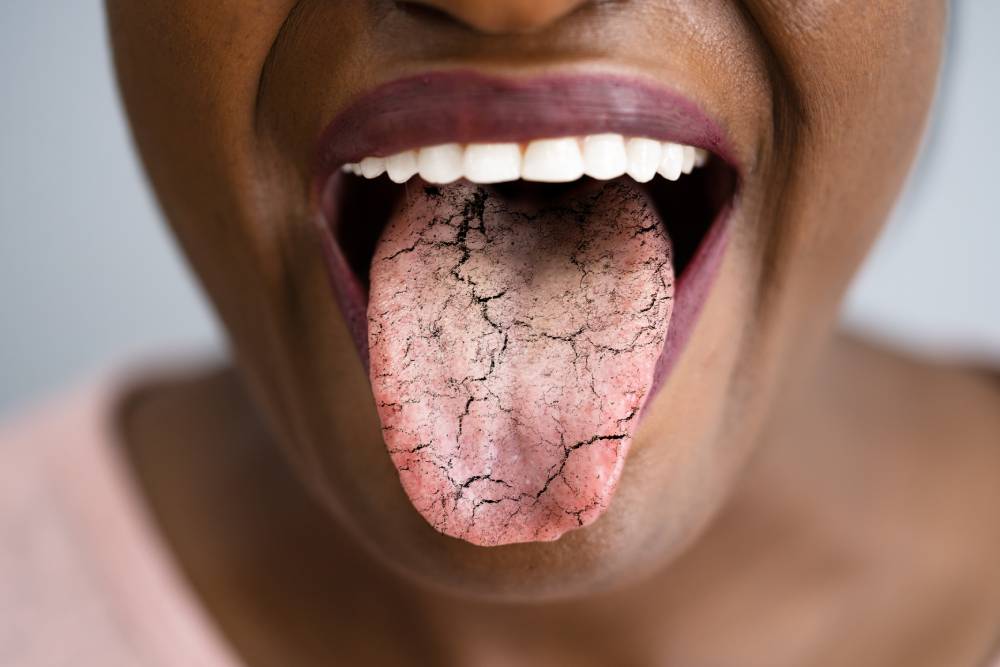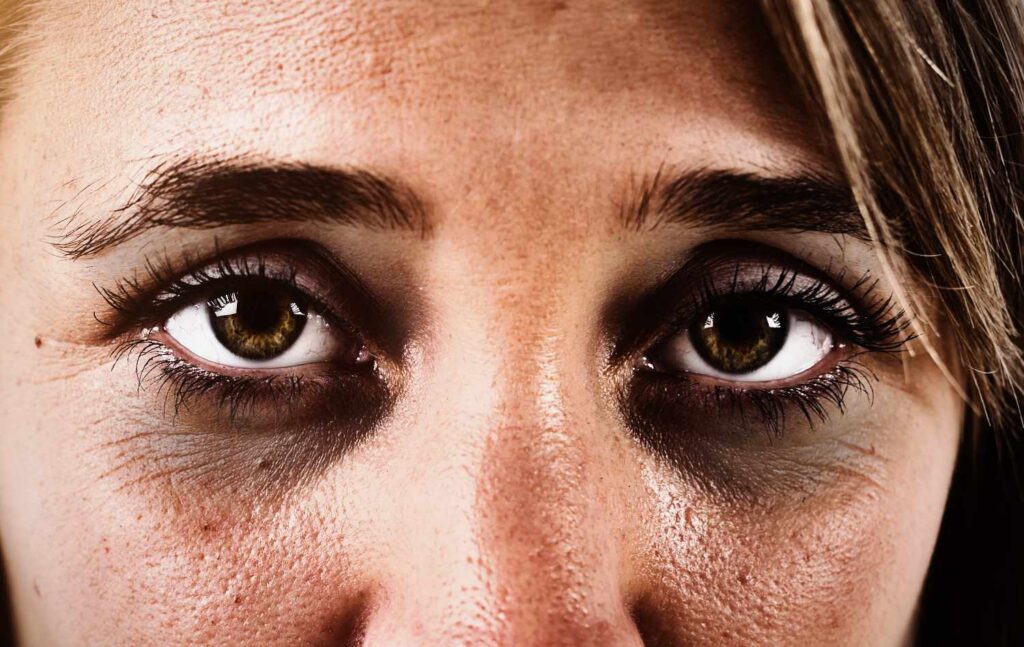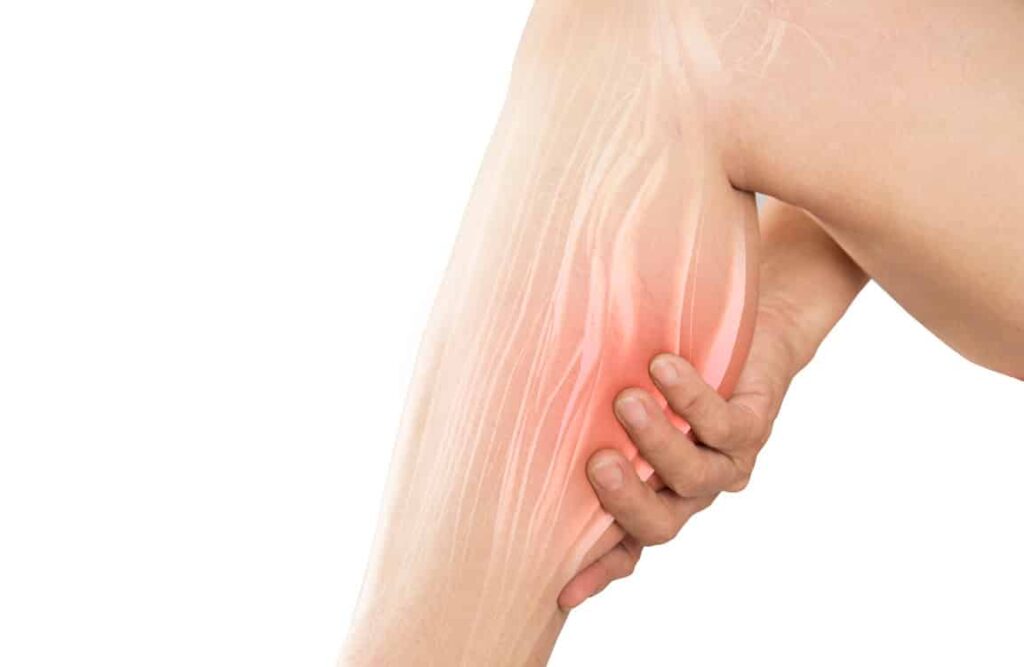Dehydration occurs when the body loses more fluids than it takes in, leading to an imbalance in the electrolytes of the body and impairing its ability to function properly. Understanding the dehydration symptoms is crucial for recognizing and addressing this condition promptly. Here’s an in-depth explanation of the 10 crucial dehydration symptoms. Without further wasting time, let’s take a look into this.
Thirst
Thirst is the body’s first signal of dehydration. When fluid levels drop below optimal levels, the brain triggers a sensation of thirst to prompt individuals to drink water and replenish lost fluids. While thirst is a natural response to dehydration, it’s important to note that by the time thirst is perceived, the body may already be mildly dehydrated. Therefore, it’s advisable to drink water regularly throughout the day, even before feeling thirsty, to maintain optimal hydration levels.

Dry Mouth and Sticky Saliva
Dehydration often manifests as dryness in the mouth and throat, accompanied by sticky or thick saliva. This occurs as the body attempts to conserve moisture by reducing saliva production. The lack of moisture in the mouth can cause discomfort, difficulty swallowing, and altered taste perception. Persistent dry mouth may also increase the risk of dental issues such as tooth decay and gum disease. So, it’s one of the crucial dehydration symptoms you should take notice of.

Dark Yellow Urine
Urine color is a reliable indicator of hydration status. When adequately hydrated, urine typically appears pale yellow or straw-colored. However, as dehydration sets in, urine becomes increasingly concentrated, leading to a darker yellow or amber hue. In severe cases of dehydration, urine may appear orange or even brownish in color, indicating significant fluid loss and potential electrolyte imbalances. Monitoring urine color can provide valuable insights into hydration levels and prompt individuals to increase their fluid intake as needed.

Decreased Urination
In addition to changes in urine color, dehydration can also affect urinary frequency and volume. As the body conserves water in response to dehydration, urine output decreases, leading to infrequent or scant urination. In severe cases, urine output may become significantly reduced or even cease altogether, indicating a state of profound dehydration requiring urgent medical attention. Monitoring urinary habits and paying attention to changes in frequency and volume can help identify dehydration early and prevent complications. That’s why, it’s one of the most important dehydration symptoms.
Fatigue and Weakness
Dehydration can cause feelings of fatigue, lethargy, and weakness as the body’s cells become deprived of essential fluids and electrolytes. Water plays a crucial role in maintaining proper cellular function, including energy production and nutrient transport. When dehydration occurs, cells are unable to perform optimally, leading to decreased energy levels and physical weakness. In addition to physical fatigue, dehydration can also impair cognitive function, resulting in difficulty concentrating, memory lapses, and impaired decision-making abilities.

Dizziness and Light-headedness
Dehydration can cause dizziness, light-headedness, and fainting episodes due to decreased blood volume and inadequate circulation. When fluid levels drop, blood pressure may decrease, compromising blood flow to the brain and other vital organs. This can lead to symptoms such as dizziness upon standing, feeling faint or lightheaded, and experiencing vertigo or a spinning sensation. Severe dehydration may even result in syncope, or temporary loss of consciousness, particularly when combined with factors such as heat exposure or prolonged physical exertion. Therefore, it’s another one of the crucial dehydration symptoms that you should not neglect.
Headache and Migraine
Dehydration is a common trigger for headaches and migraines, as reduced fluid intake can lead to changes in blood flow and electrolyte balance in the brain. Dehydrated individuals may experience tension headaches characterized by a dull, achy sensation around the forehead and temples, or migraine headaches accompanied by throbbing pain, nausea, and sensitivity to light and sound. Rehydrating with water and electrolyte-rich fluids can help alleviate headache symptoms and prevent dehydration-related migraines.

Dry Skin and Sunken Eyes
Dehydration can affect the appearance and texture of the skin, leading to dryness, flakiness, and a lack of elasticity. In severe cases, dehydration may cause the skin to appear sunken or shriveled, particularly around the eyes and cheeks. This occurs as the body redirects moisture from the skin’s surface to internal organs in an attempt to maintain essential functions. Additionally, dehydration can impair the skin’s ability to regulate temperature and protect against environmental toxins, increasing the risk of skin irritation, inflammation, and premature aging so keep in mind about these types of dehydration symptoms too!

Rapid Heart Rate and Low Blood Pressure
Dehydration can impact cardiovascular function, leading to changes in heart rate and blood pressure. When fluid levels drop, the heart must work harder to maintain adequate circulation, resulting in an elevated heart rate. Additionally, dehydration can cause blood pressure to decrease, further compromising blood flow to vital organs and tissues. Symptoms of dehydration-related cardiovascular changes may include palpitations, rapid pulse, orthostatic hypotension (a drop in blood pressure upon standing), and weak or thready pulse. Severe dehydration can even lead to shock, a life-threatening condition characterized by inadequate blood flow to vital organs!

Muscle Cramps and Spasms
Electrolyte imbalances resulting from dehydration can lead to muscle cramps, spasms, and twitching. Electrolytes such as sodium, potassium, and magnesium play crucial roles in muscle function, including muscle contraction and relaxation. When fluid levels drop, electrolyte concentrations become diluted, impairing the body’s ability to regulate muscle activity properly. This can result in painful cramps and spasms, particularly in the legs, arms, abdomen, and back. Rehydrating with electrolyte-rich fluids and replenishing lost minerals can help alleviate muscle discomfort and prevent dehydration-related cramping. This is one of those dehydration symptoms that is common among professional bodybuilders when they stay dehydrated and ready to go onstage for bodybuilding competition.

Conclusion
In summary, dehydration can be identified through a variety of symptoms affecting various bodily systems, including the gastrointestinal, urinary, cardiovascular, and musculoskeletal systems. Recognizing the dehydration symptoms early is essential for preventing complications and promoting optimal health and well-being. By staying hydrated, maintaining a balanced diet, and monitoring fluid intake, individuals can ensure proper hydration and support overall vitality and resilience. If experiencing severe or persistent symptoms of dehydration, seeking medical attention promptly is advisable to prevent complications and receive appropriate treatment. Hopefully, you found this article helpful enough. If you really did then let us know your valuable thoughts in the comments. Thanks for visiting and appreciating our work.
